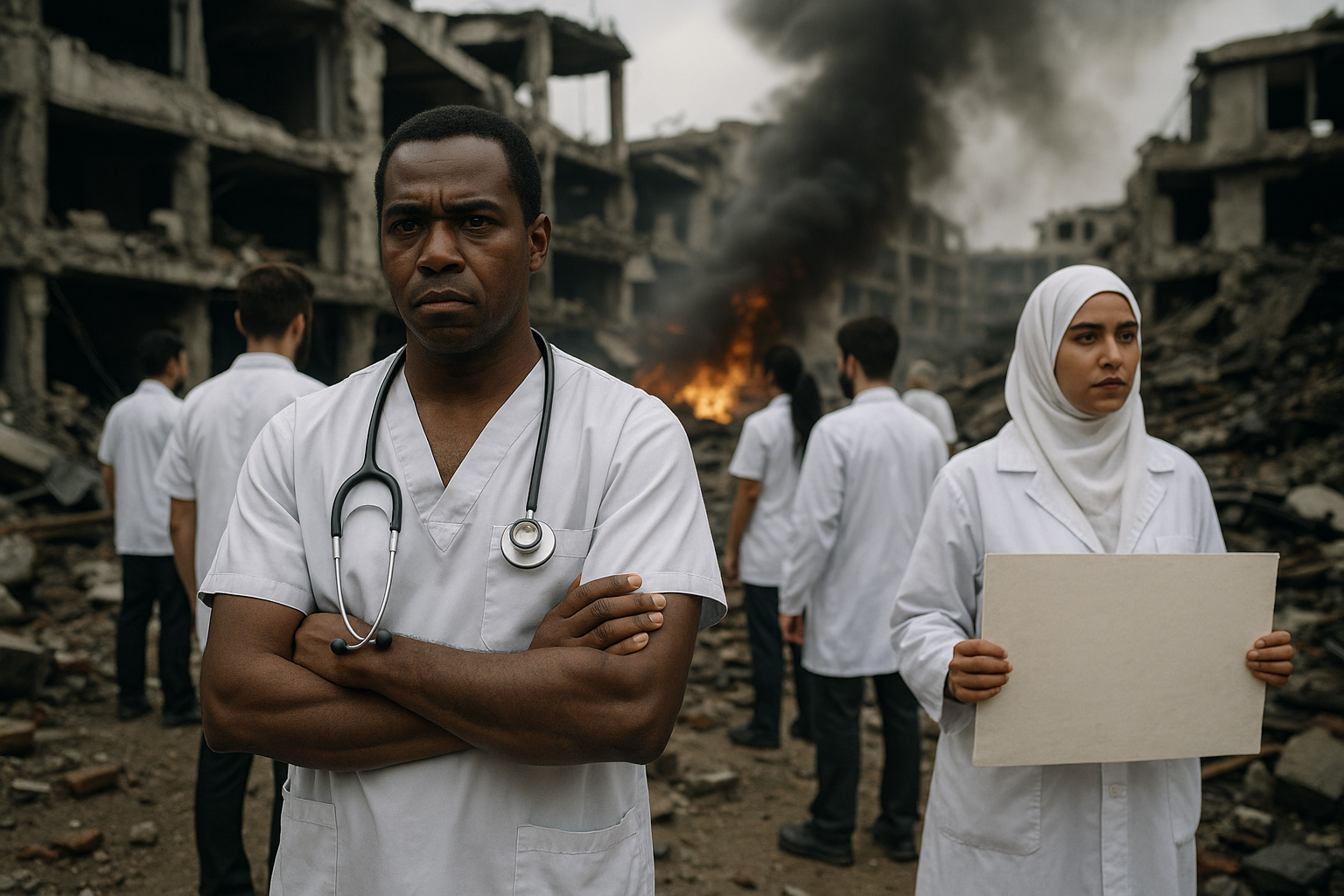WHO Condemns Mass Killing at El Fasher Hospital Amid Sudan’s Deepening Crisis
According to WHO, the Saudi Maternity Hospital — the only partially functioning medical facility in El Fasher — was attacked for the fourth time in a single month.

The World Health Organization (WHO) has issued a strong condemnation following the mass killing of more than 460 patients and their companions, along with the abduction of six health workers, during a horrific assault on the Saudi Maternity Hospital in El Fasher, North Darfur. The atrocity, which took place on 28 October, marks one of the darkest episodes in Sudan's ongoing humanitarian crisis.
A Brutal Attack on the Heart of Health Care
According to WHO, the Saudi Maternity Hospital — the only partially functioning medical facility in El Fasher — was attacked for the fourth time in a single month. The assault left a nurse dead and three others wounded. Just two days later, six health workers — four doctors, a nurse, and a pharmacist — were abducted, and hundreds of patients and their families were executed inside the hospital premises.
"This was not just an attack on a hospital," WHO stated, "but an assault on humanity itself." The organization emphasized that targeting medical facilities and personnel constitutes a grave violation of International Humanitarian Law, which protects the sanctity and neutrality of health care in times of conflict.
Health System in Collapse
Since fighting reignited in the region, 46 health workers have been killed in El Fasher alone — including the Director of Primary Health Care for the State Ministry of Health — and 48 more have been injured. Many others remain missing. The fate of health workers associated with three nongovernmental organizations in the city is still unknown.
WHO warned that the violence is accelerating the collapse of an already fragile health system. Hospitals have been damaged or destroyed, disease surveillance has nearly halted, and access to life-saving care has become impossible for many civilians.
Siege, Starvation, and Disease
More than 260,000 civilians remain trapped in El Fasher, enduring siege conditions with almost no access to food, clean water, or medicine. The violence has forced at least 28,000 people to flee in recent days — 26,000 to rural areas around El Fasher and another 2,000 to Tawila, a town already struggling to accommodate 575,000 displaced people.
UN officials estimate that an additional 100,000 people may attempt to flee in the coming weeks as the conflict worsens. Most of the displaced are women and unaccompanied children, facing acute shortages of food, shelter, and health care, and heightened risks of gender-based violence.
Compounding the suffering, cholera is spreading rapidly in the overcrowded and unsanitary conditions. El Fasher has reported 272 suspected cases and 32 deaths, representing a case fatality rate of nearly 12% — one of the highest in the region. Across Darfur, the outbreak has reached 18,468 reported cases and 662 deaths in 40 localities.
Humanitarian Access Severed Since February
El Fasher has been cut off from humanitarian aid since February 2025, isolating hundreds of thousands of civilians. With markets closed and food stocks depleted, malnutrition is soaring, particularly among children and pregnant women, who are now at greater risk of infections such as cholera, malaria, and acute respiratory illnesses.
Despite access restrictions, WHO continues to coordinate emergency health operations. The organization has dispatched 20 metric tons of medicines and emergency kits, including cholera treatment supplies and nutrition kits for malnourished children, from Nyala to Tawila.
WHO's Emergency Response
In partnership with humanitarian agencies, WHO is working to stabilize injured civilians and support newly displaced populations. Teams are operating at reception sites in Korma, midway between El Fasher and Tawila, to treat the wounded and arrange medical evacuations.
WHO has also deployed rapid response teams in Tawila and nearby localities to address urgent health needs, including outbreak control and malnutrition screening. Health supplies handed over in Abeche, Chad, are being expedited across the border to support clinics serving displaced Sudanese families.
Trucks carrying WHO supplies are on standby in Darfur, awaiting clearance to join a UN humanitarian convoy delivering food, medicines, and health materials into El Fasher as soon as security conditions permit.
A Call for Action and Accountability
WHO reiterated its call for an immediate cessation of hostilities across Sudan, stressing that hospitals, health workers, and patients must never be targeted. The agency urged all parties to guarantee safe, rapid, and unimpeded humanitarian access to deliver life-saving aid.
"The sanctity of health care must be respected," WHO declared. "These deliberate attacks are not only violations of humanitarian law but acts of unconscionable cruelty that must be investigated and prosecuted."
The tragedy at the Saudi Maternity Hospital has become a symbol of the suffering engulfing Sudan, where months of armed conflict have already displaced millions and decimated basic services. Humanitarian agencies warn that without immediate access and international pressure to halt the violence, North Darfur faces an irreversible humanitarian collapse.
ALSO READ
-
U.S. Senators Urge Strong Action Over Sudan's RSF Crisis
-
UN Warns of South Sudan’s Political Collapse, Urges Urgent Global Intervention
-
Aid workers fear for those missing from city in Sudan's Darfur region seized by paramilitary force
-
Call for Action: U.S. Senators Demand Swift Response to Sudan Crisis
-
WHO chief says over 460 people were reportedly killed at a hospital in Darfur city taken by Sudanese paramilitary forces, reports AP.









